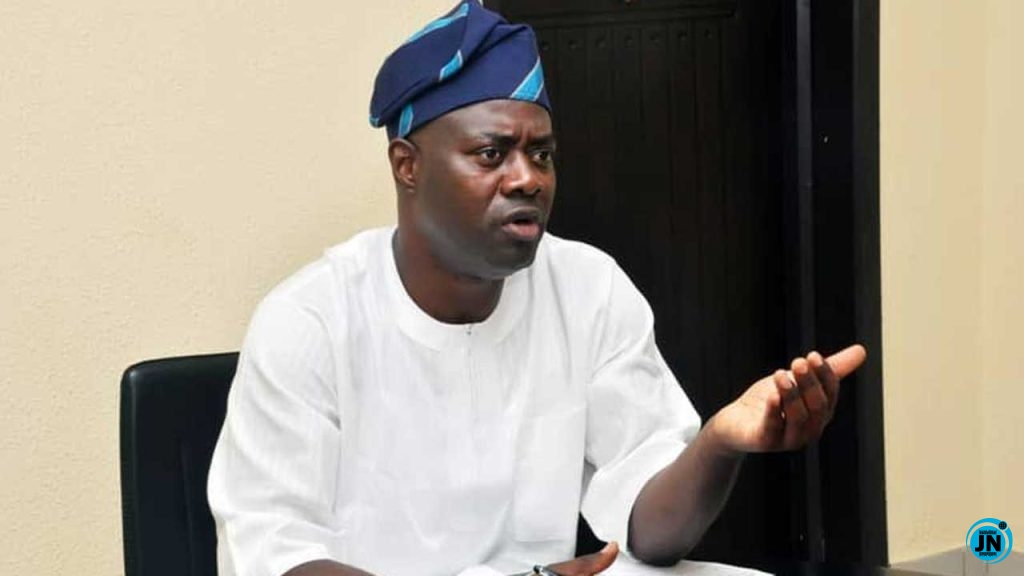Oyo State Governor Seyi Makinde has strongly dismissed accusations of land grabbing that have been linked to the ongoing Circular Road project and other developments in the state. Speaking in a statement issued in Ibadan on Sunday, Governor Makinde sought to set the record straight, describing the allegations as being based on misinformation and a misunderstanding of the facts surrounding the projects in question.
The governor was quick to refute the claims, asserting that those accusing him of land grabbing were, in fact, the very individuals engaged in such practices. He emphasized that while others have raised concerns about his involvement in land-related issues, he remains firmly opposed to the practice. Makinde addressed the allegations directly, stating, “Some people are accusing me of being a land grabber, but I am not. It is actually the land grabbers who are calling me one. Several individuals are currently under investigation for their involvement in this illegal activity.” The governor made it clear that any such accusations against him were groundless and driven by personal agendas or political motives, and he urged the public to look beyond these claims.
Further defending his administration’s stance, Makinde pointed out that while previous governments had made notable efforts to advance development in Oyo State, his administration had brought a fresh approach to governance. He remarked, “It’s only an idiot who keeps doing the same thing and expects a different result,” highlighting that his efforts to implement new projects, such as the Circular Road, were designed to bring about transformative changes for the state. He reiterated that development initiatives must be forward-thinking and should address the real needs of the people.[/p>
In discussing the Circular Road project, Makinde outlined the ambitious plans for what will become Nigeria’s first motorway. This project is set to feature a 32-kilometer stretch of road running from Tech-U to Badeku, with only two exit points. The aim is to create a high-capacity road system that will not only facilitate the free flow of traffic but also promote economic development along the road's corridor. He emphasized that the motorway would be a crucial infrastructure development, paving the way for future growth and opportunities in the state and beyond.
The governor also took the opportunity to reflect on his administration’s progress over the past five years, particularly in relation to the state’s finances. He noted that the administration had successfully realigned its budget, achieving significant improvements in performance. Makinde stated, “When we realigned the budget in 2019, we achieved 48% performance. By 2020, despite the challenges posed by COVID-19, we reached 60%, and now we are over 70%, ensuring stability in project execution and enhancing livability in the state.” This improvement in budget performance has been a key factor in the successful implementation of various projects and in maintaining steady economic progress in the state. The governor acknowledged that these efforts have helped to strengthen Oyo State’s financial position and have allowed his government to effectively execute key development plans.
Addressing the controversial Tax Reform Bill, Makinde clarified his administration's position on the matter, calling for broader consultations before the bill proceeded further. He explained that there had been significant discussions at the National Economic Council (NEC), where it was unanimously decided to pause the bill’s progress at the National Assembly until more stakeholders were involved in the decision-making process. Makinde elaborated, “It was agreed at the NEC meeting to withdraw the bill for wider consultation. National policies require alignment, and adjustments may be necessary based on stakeholder input.” The governor stressed that his stance on the Tax Reform Bill was grounded in the belief that inclusive dialogue was necessary to ensure that the policies would benefit all Nigerians and align with national priorities.
Concluding his statement, Makinde addressed some of the misconceptions surrounding his role in the Tax Reform Bill controversy. He acknowledged that some people had focused more on criticizing him personally rather than engaging with the substantive issues at hand. “I was tasked with explaining why the bill should be withdrawn for consultation, but some people focused on the messenger rather than the message,” he said, emphasizing that the goal was to promote a policy that would benefit the country as a whole, and he encouraged the public to focus on the broader conversation rather than get sidetracked by personal attacks.

